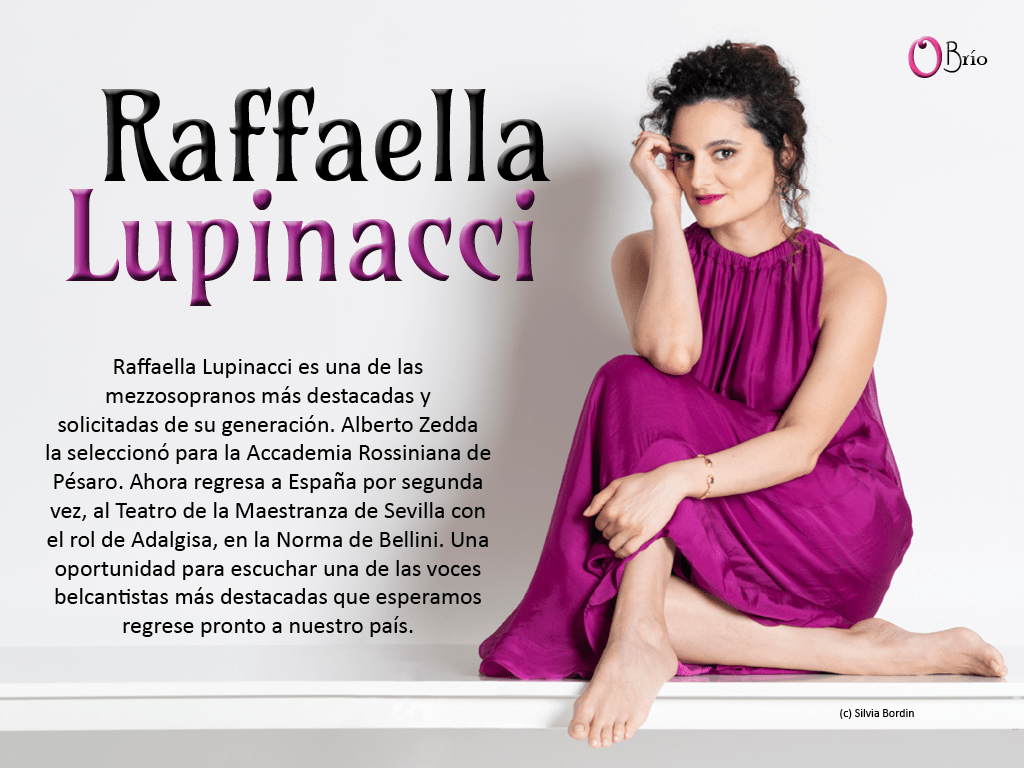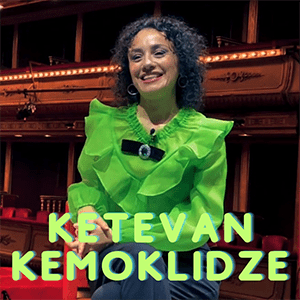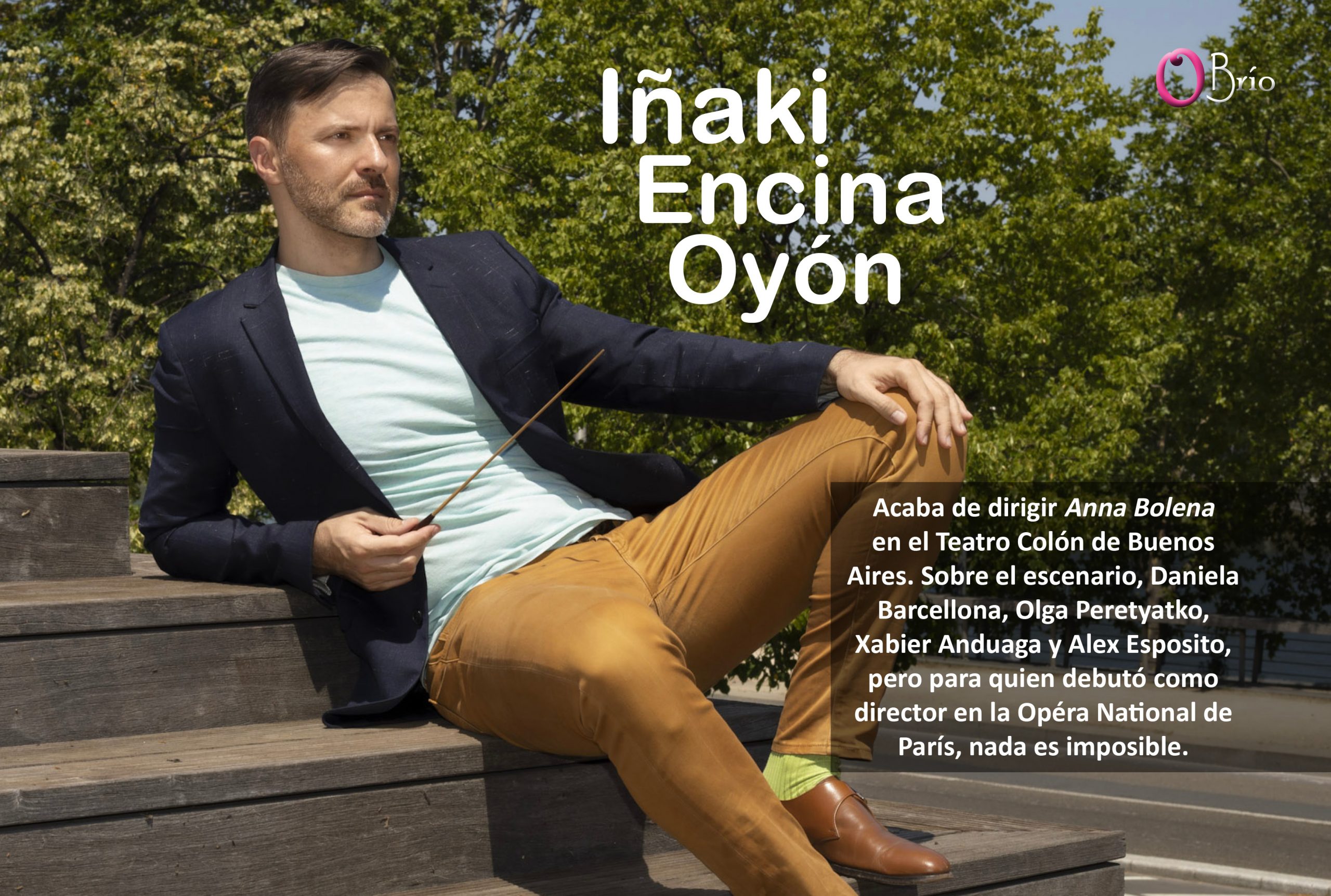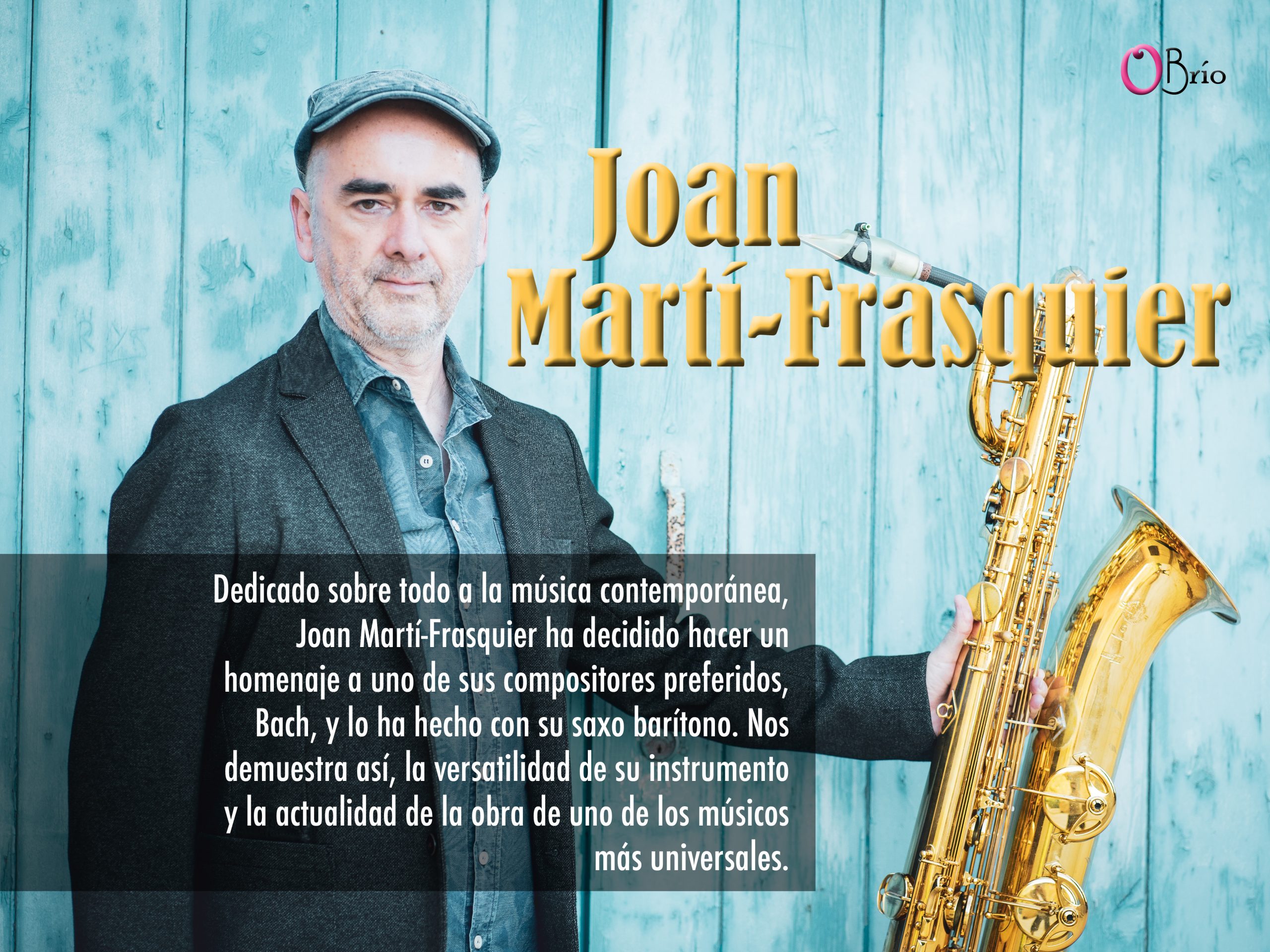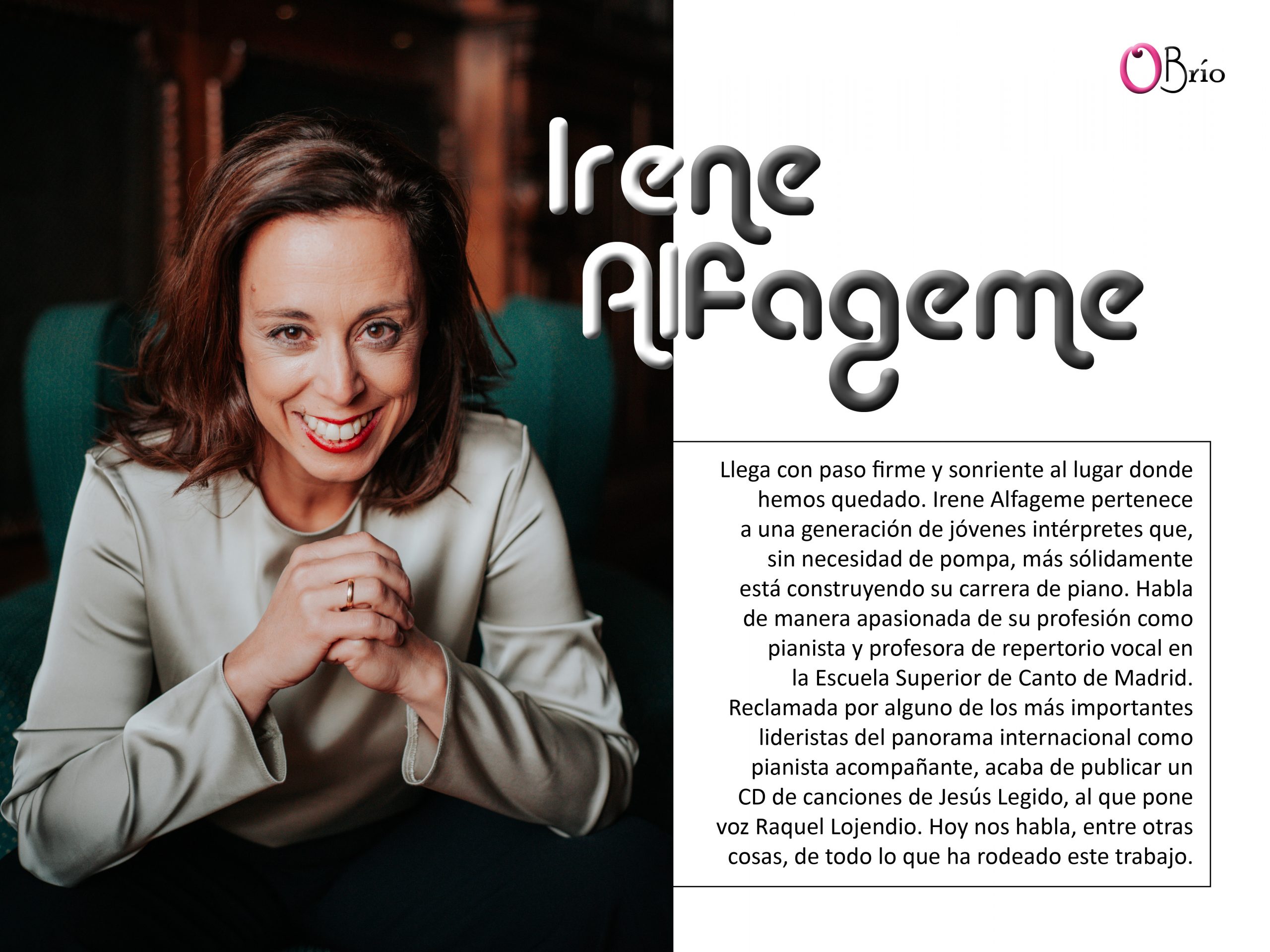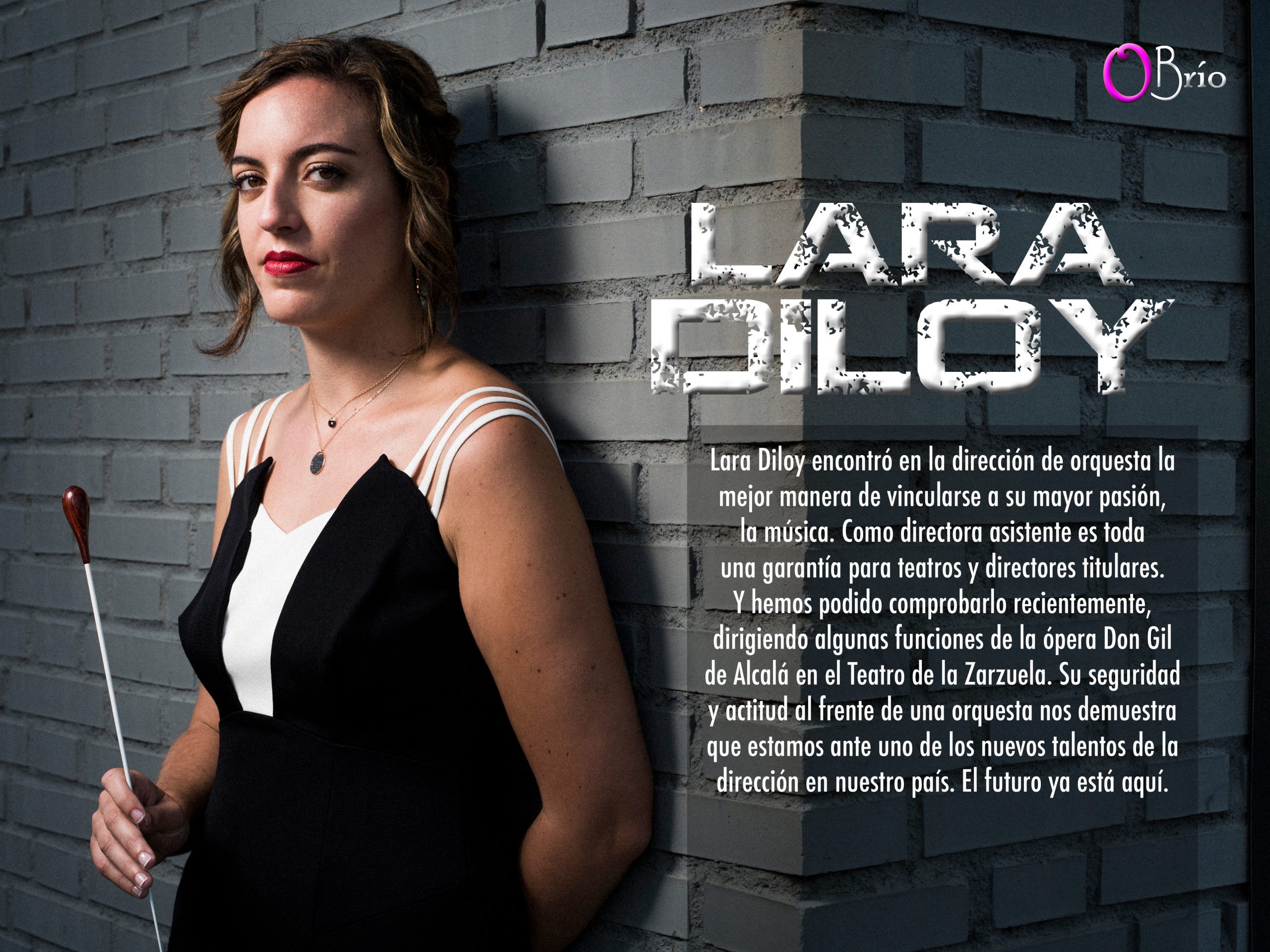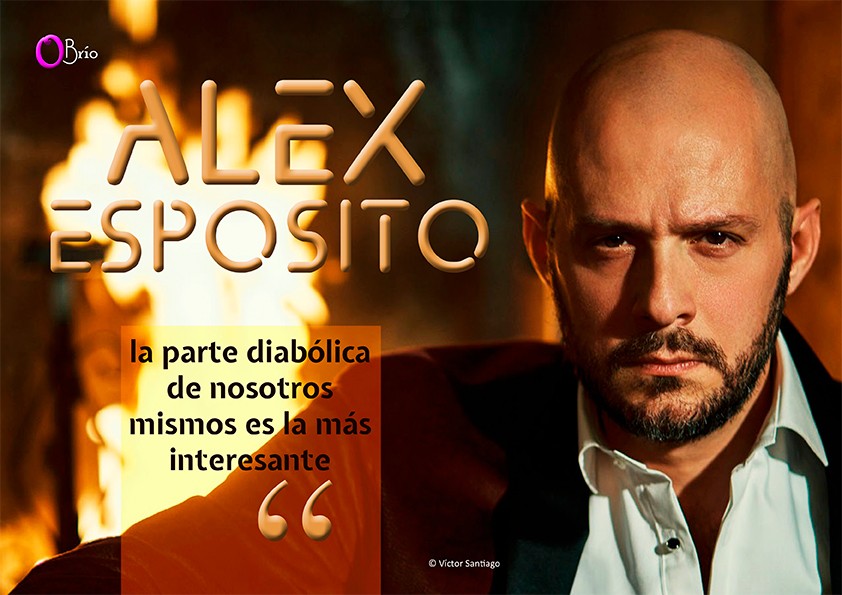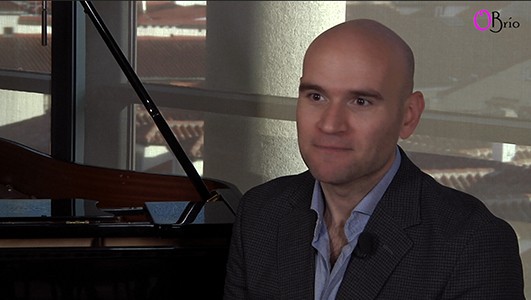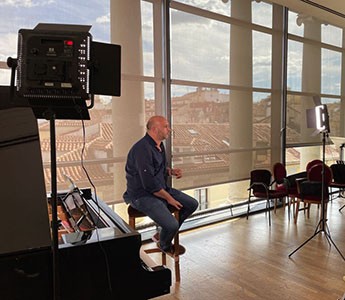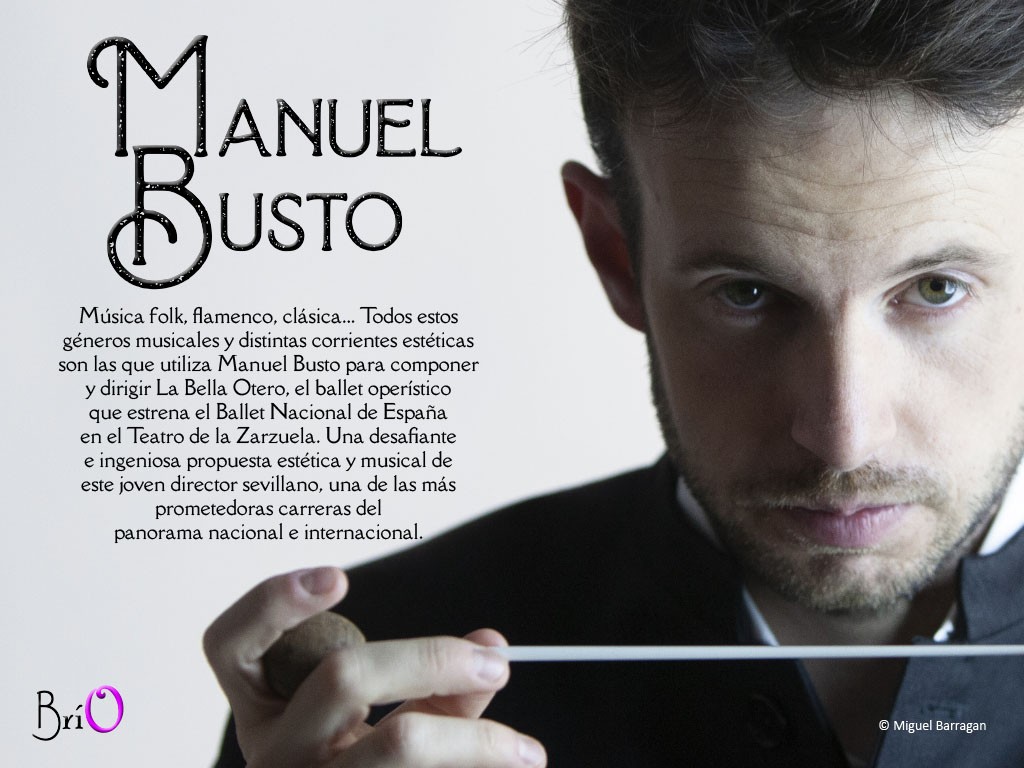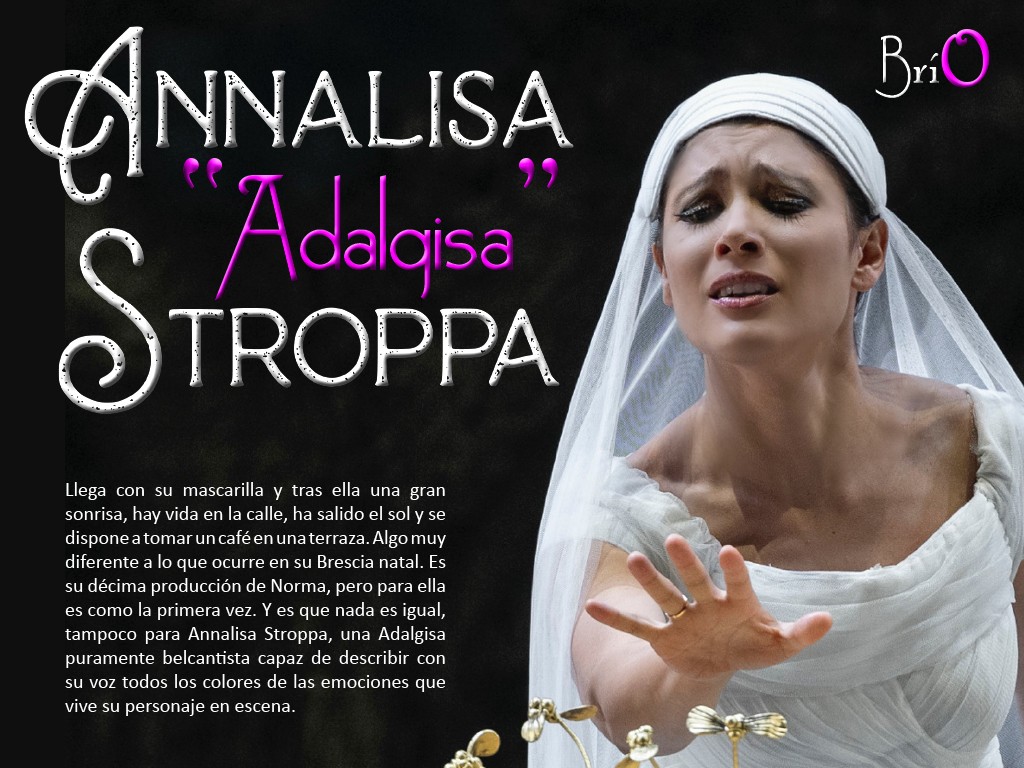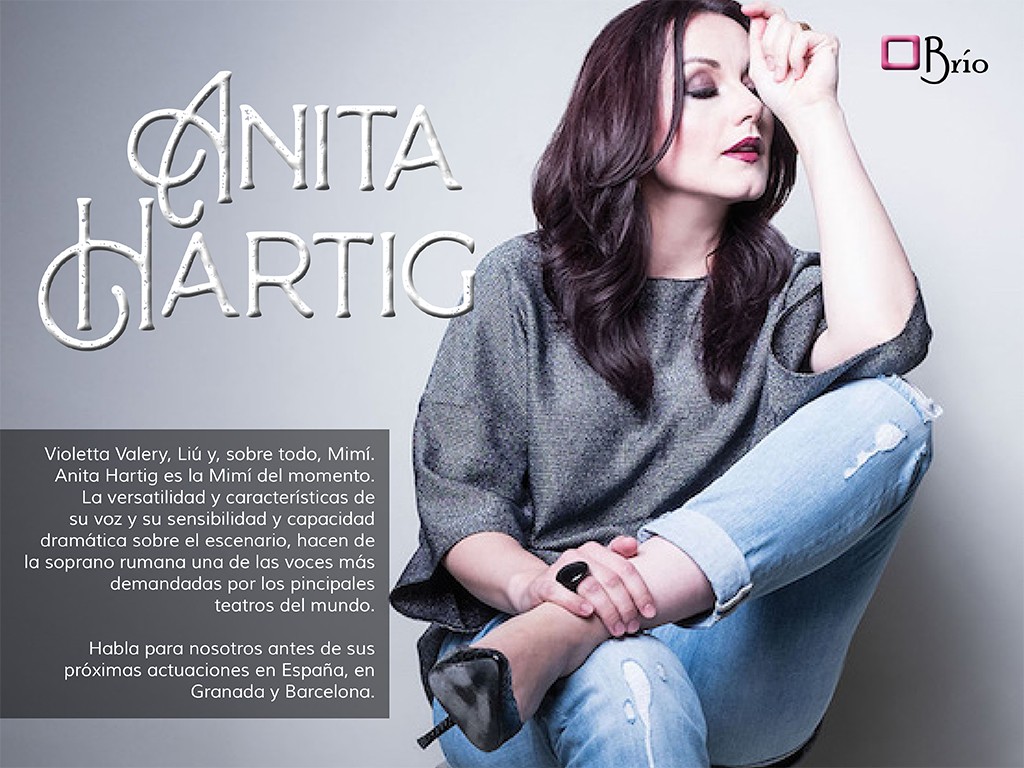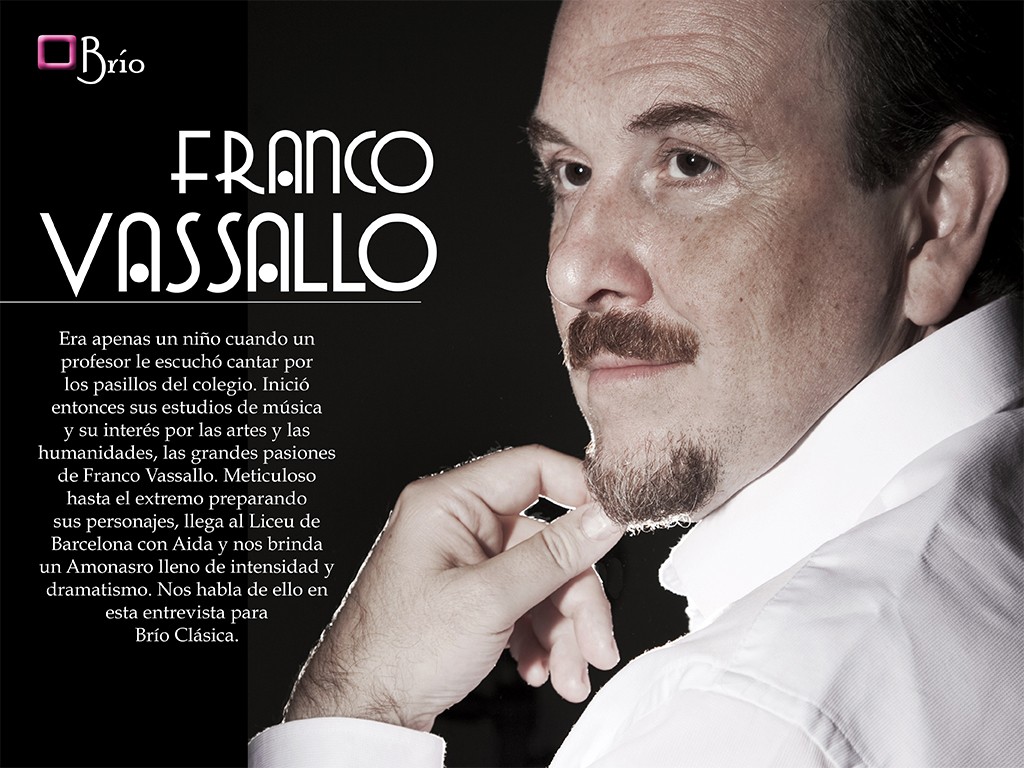Francesca Sassu, la soprano italiana habla para Brío Clásica
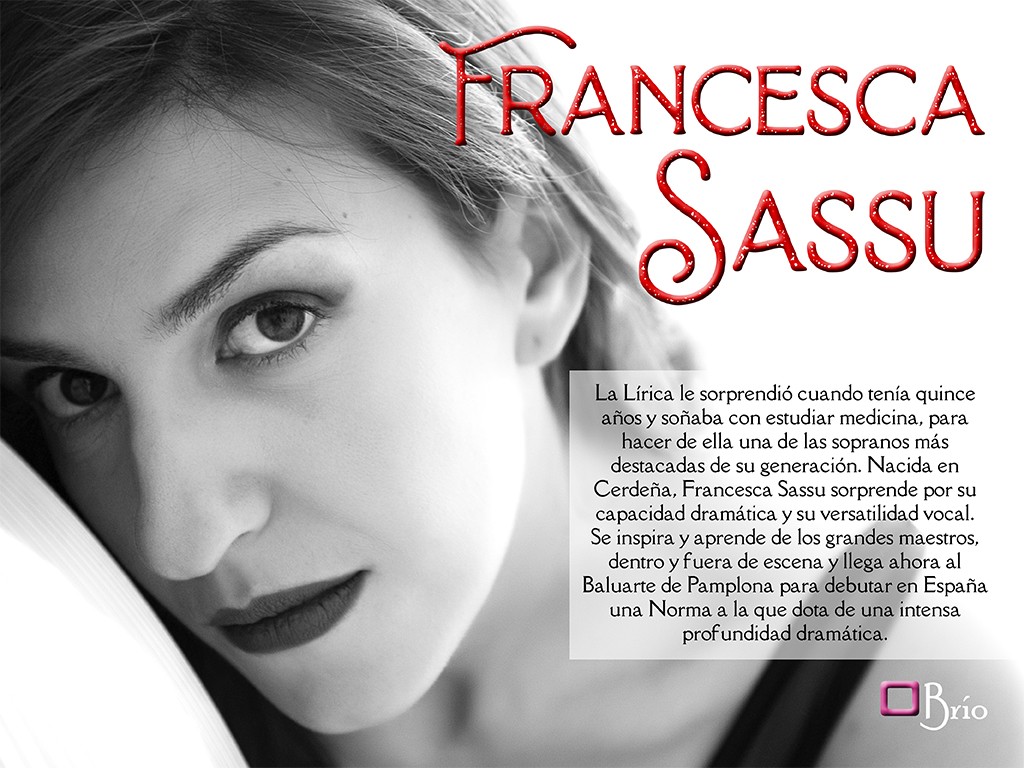
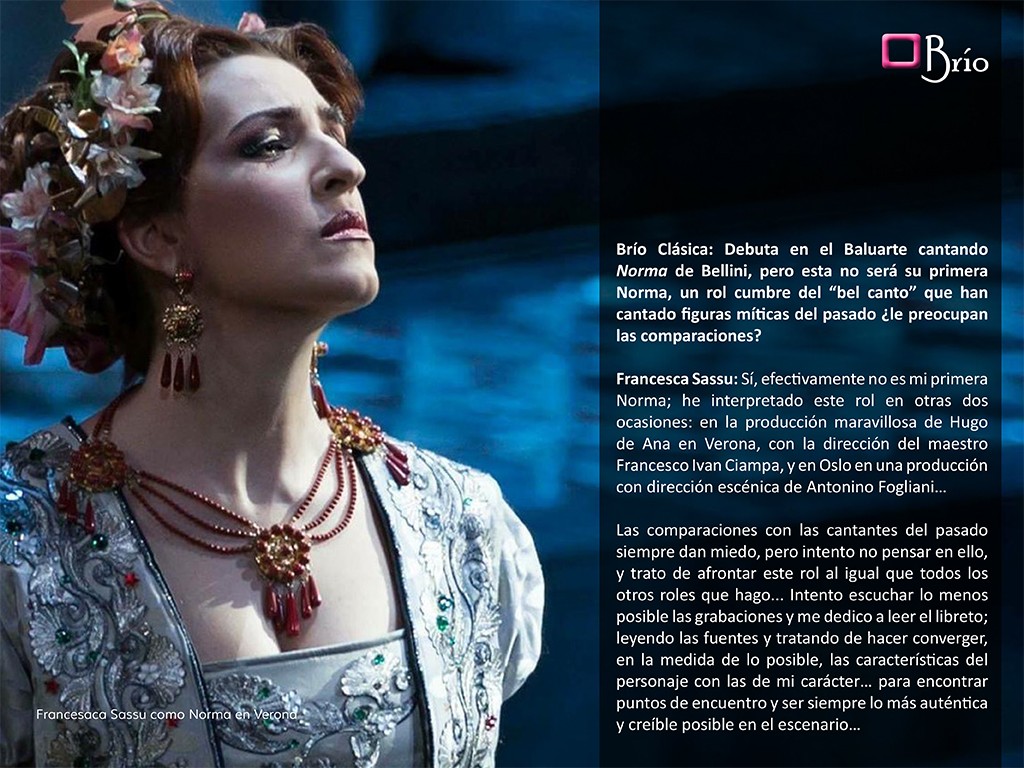
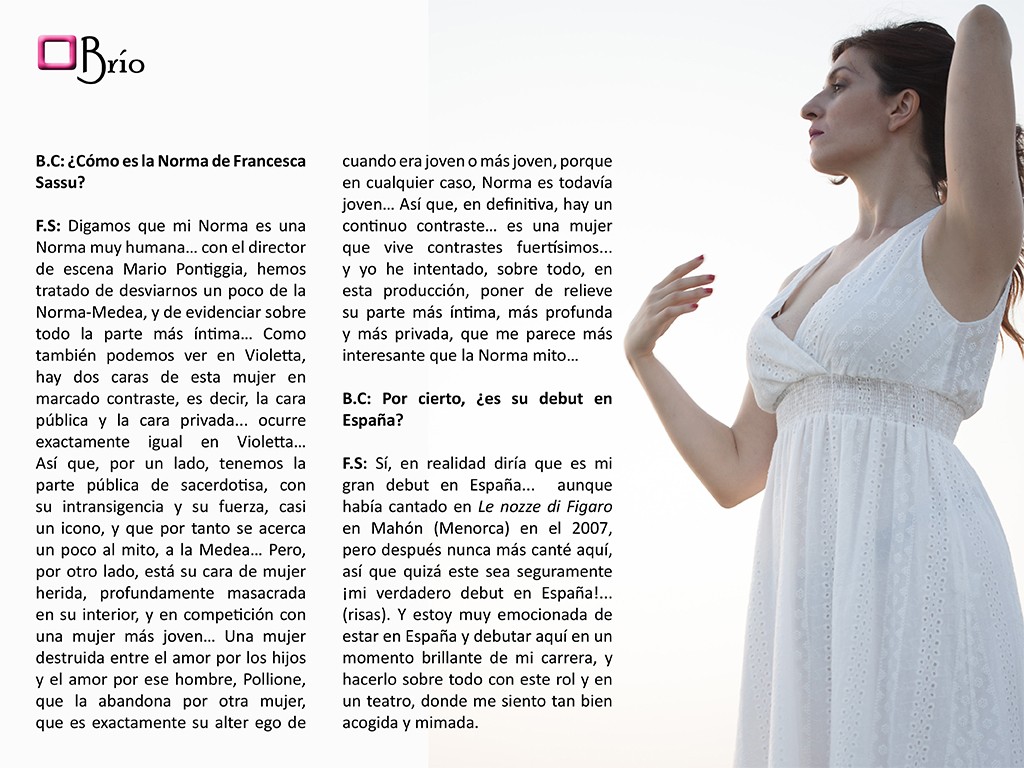
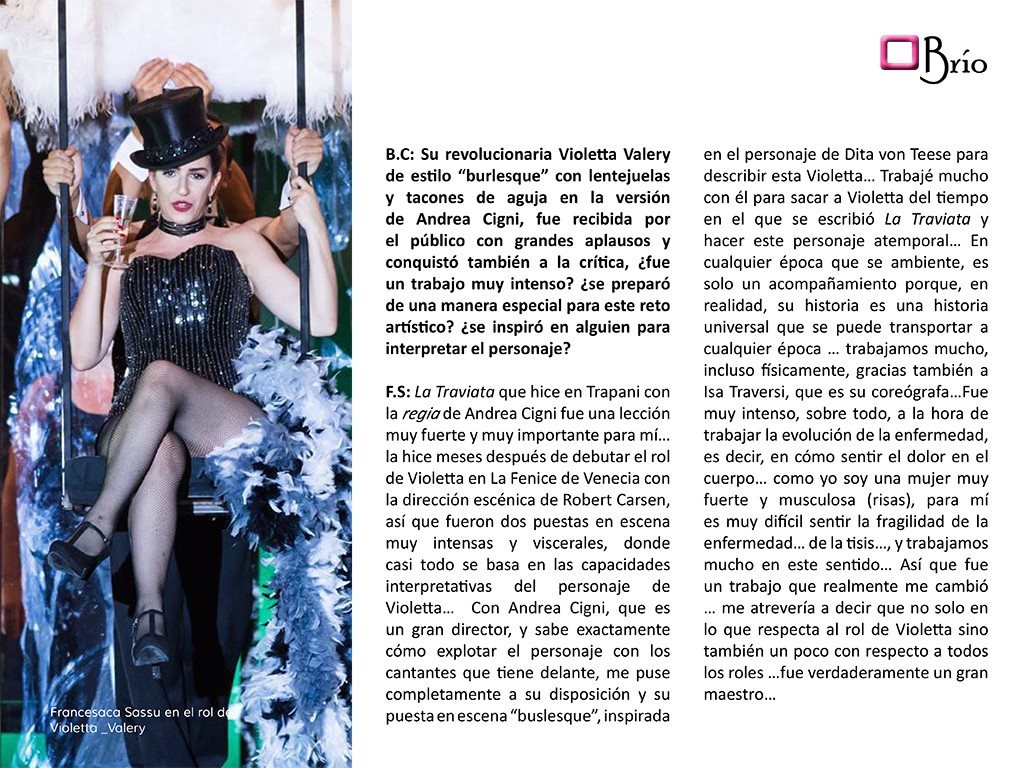
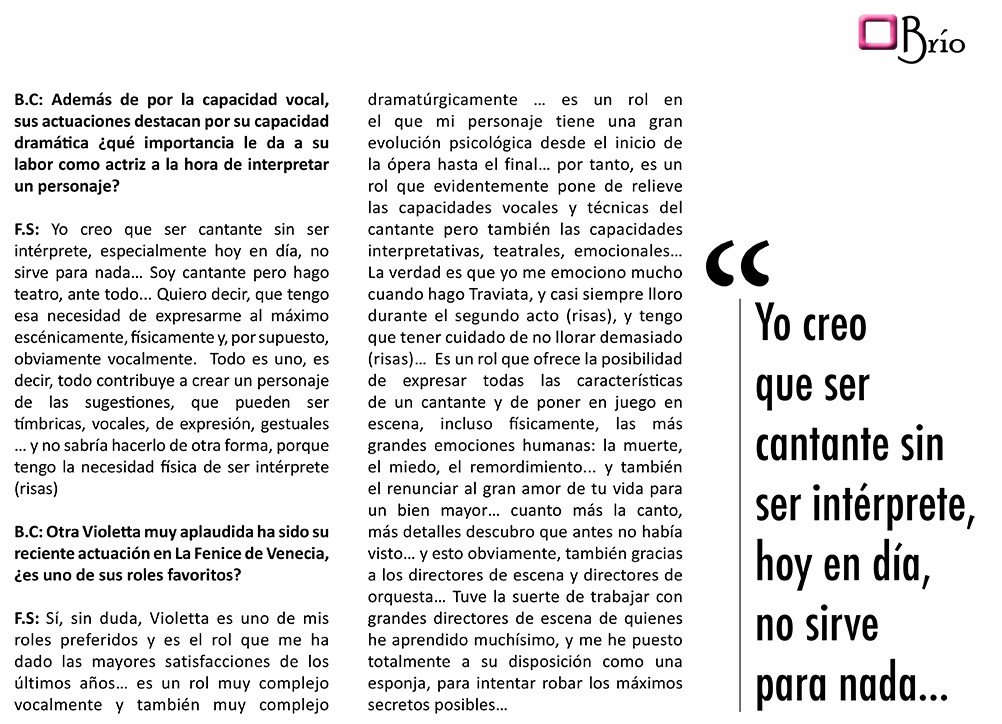
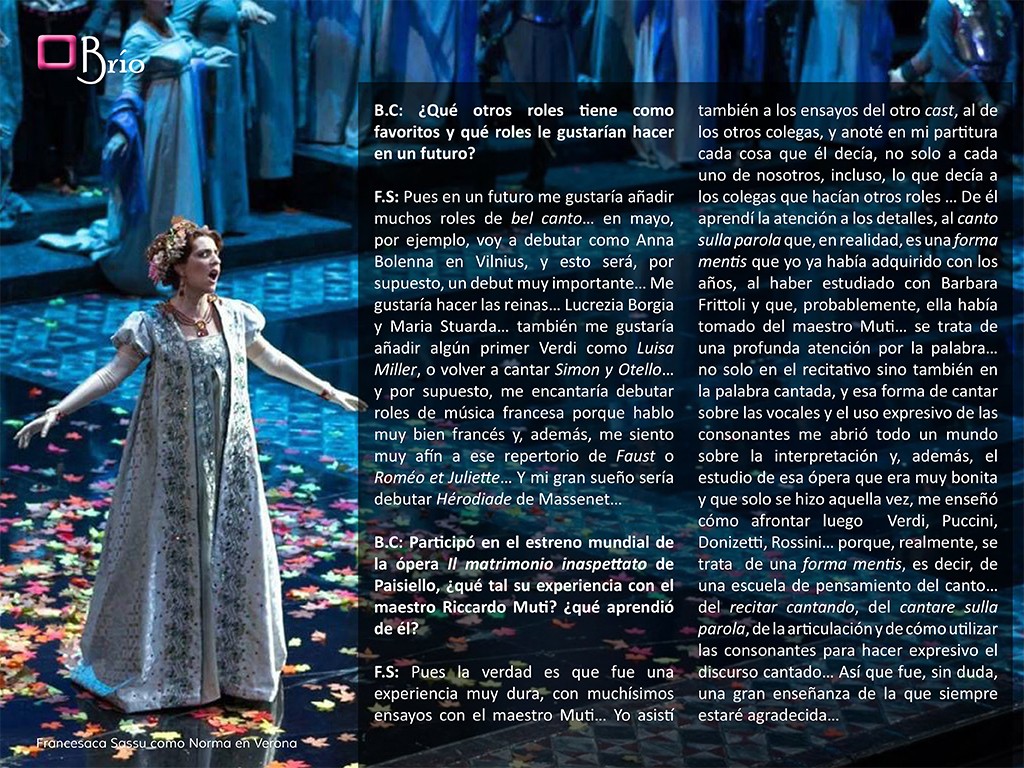
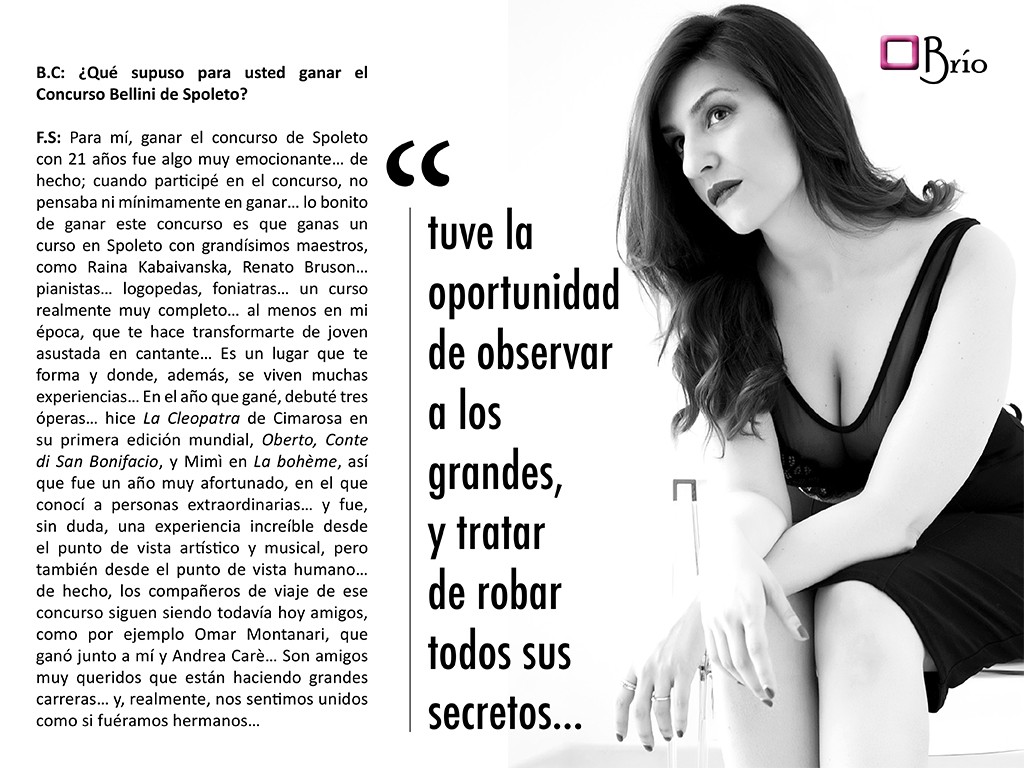
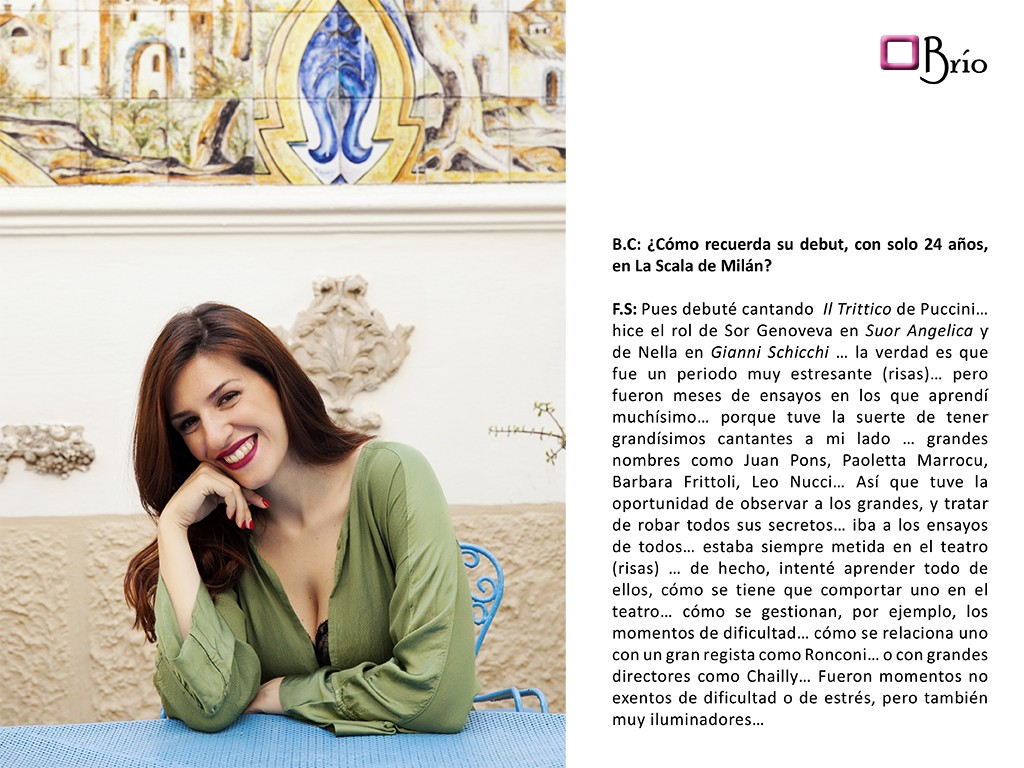
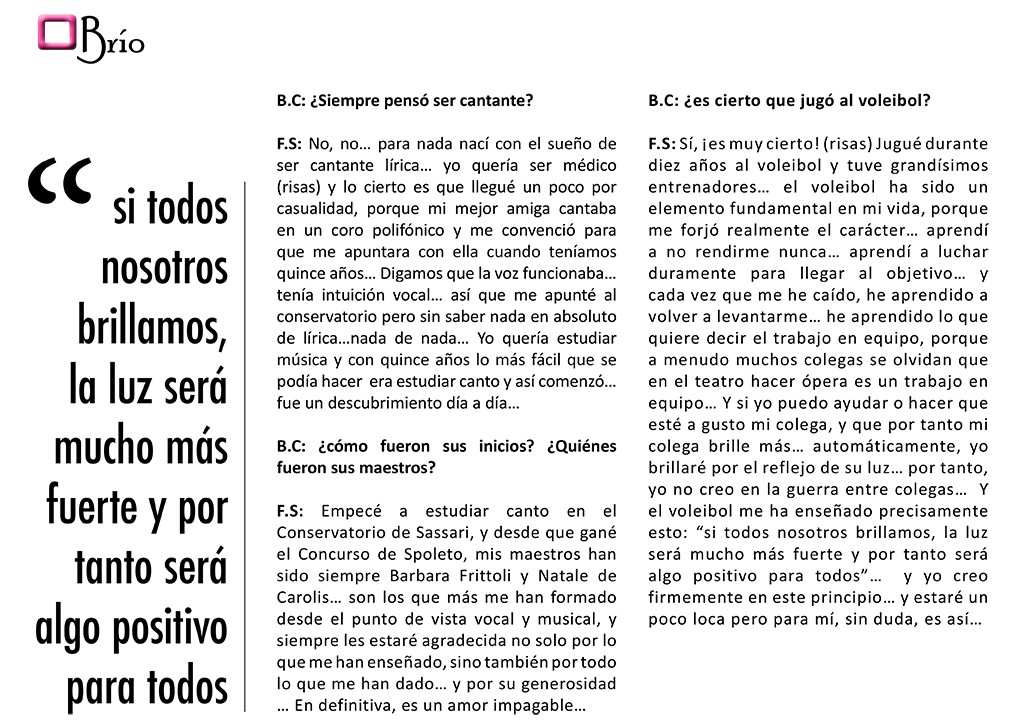
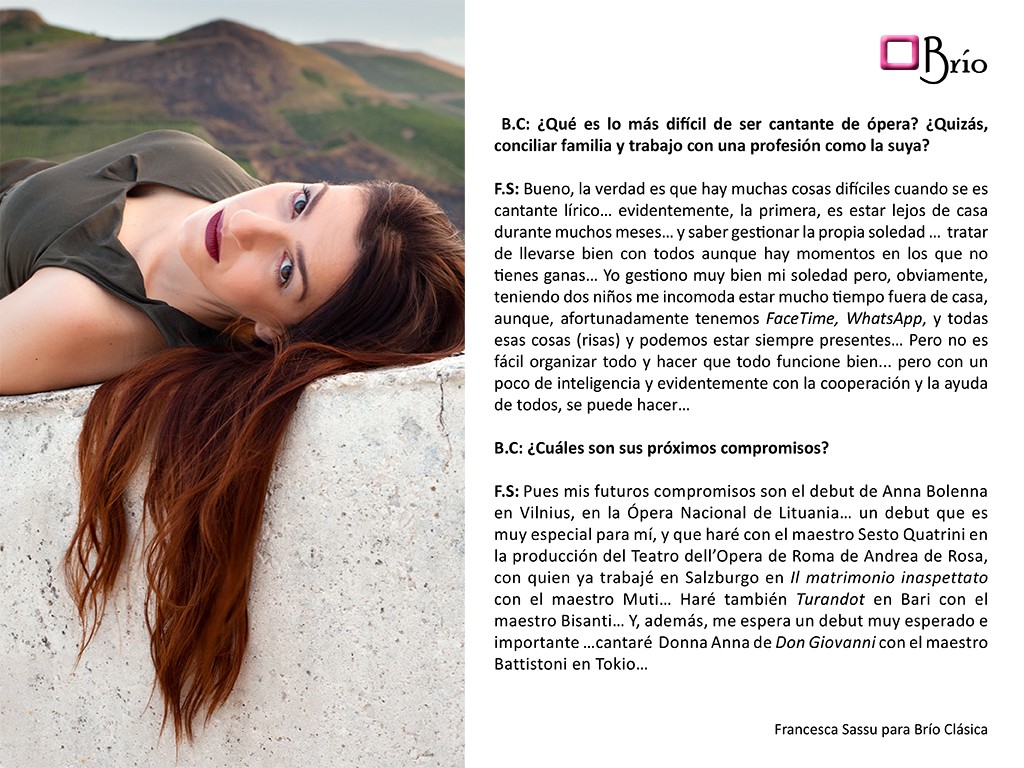
La Lírica le sorprendió cuando tenía quince años y soñaba con estudiar medicina, para hacer de ella una de las sopranos más destacadas de su generación. Nacida en Cerdeña, Francesca Sassu sorprende por su capacidad dramática y su versatilidad vocal. Se inspira y aprende de los grandes maestros, dentro y fuera de escena y llega ahora al Baluarte de Pamplona para debutar en España una Norma a la que dota de una intensa profundidad dramática.Brío Clásica: Debuta en el Baluarte cantando Norma de Bellini, pero esta no será su primera Norma, un rol cumbre del “bel canto” que han cantado figuras míticas del pasado ¿le preocupan las comparaciones?
Sí, efectivamente no es mi primera Norma; he interpretado este rol en otras dos ocasiones: en la producción maravillosa de Hugo de Ana en Verona, con la dirección del maestro Francesco Ivan Ciampa, y en Oslo en una producción con dirección escénica de Antonino Fogliani… Las comparaciones con las cantantes del pasado siempre dan miedo, pero intento no pensar en ello, y trato de afrontar este rol al igual que todos los otros roles que hago… Intento escuchar lo menos posible las grabaciones y me dedico a leer el libreto; leyendo las fuentes y tratando de hacer converger, en la medida de lo posible, las características del personaje con las de mi carácter… para encontrar puntos de encuentro y ser siempre lo más auténtica y creíble posible en el escenario…
Francesca Sassu: ¿Cómo es la Norma de Francesca Sassu?
Digamos que mi Norma es una Norma muy humana… con el director de escena Mario Pontiggia, hemos tratado de desviarnos un poco de la Norma-Medea, y de evidenciar sobre todo la parte más íntima… Como también podemos ver en Violetta, hay dos caras de esta mujer en marcado contraste, es decir, la cara pública y la cara privada… ocurre exactamente igual en Violetta… Así que, por un lado, tenemos la parte pública de sacerdotisa, con su intransigencia y su fuerza, casi un icono, y que por tanto se acerca un poco al mito, a la Medea… Pero, por otro lado, está su cara de mujer herida, profundamente masacrada en su interior, y en competición con una mujer más joven… Una mujer destruida entre el amor por los hijos y el amor por ese hombre, Pollione, que la abandona por otra mujer, que es exactamente su alter ego de cuando era joven o más joven, porque en cualquier caso, Norma es todavía joven… Así que, en definitiva, hay un continuo contraste… es una mujer que vive contrastes fuertísimos… y yo he intentado, sobre todo, en esta producción, poner de relieve su parte más íntima, más profunda y más privada, que me parece más interesante que la Norma mito…
B.C: Por cierto, ¿es su debut en España?
F.S: Sí, en realidad diría que es mi gran debut en España… aunque había cantado en Le nozze di Figaro en Mahón (Menorca) en el 2007, pero después nunca más canté aquí, así que quizá este sea seguramente ¡mi verdadero debut en España!… (risas). Y estoy muy emocionada de estar en España y debutar aquí en un momento brillante de mi carrera, y hacerlo sobre todo con este rol y en un teatro, donde me siento tan bien acogida y mimada.
B.C: Su revolucionaria Violetta Valery de estilo “burlesque” con lentejuelas y tacones de aguja en la versión de Andrea Cigni, fue recibida por el público con grandes aplausos y conquistó también a la crítica, ¿fue un trabajo muy intenso? ¿se preparó de una manera especial para este reto artístico? ¿se inspiró en alguien para interpretar el personaje?
F.S: La Traviata que hice en Trapani con la regia de Andrea Cigni fue una lección muy fuerte y muy importante para mí… la hice meses después de debutar el rol de Violetta en La Fenice de Venecia con la dirección escénica de Robert Carsen, así que fueron dos puestas en escena muy intensas y viscerales, donde casi todo se basa en las capacidades interpretativas del personaje de Violetta… Con Andrea Cigni, que es un gran director, y sabe exactamente cómo explotar el personaje con los cantantes que tiene delante, me puse completamente a su disposición y su puesta en escena “buslesque”, inspirada en el personaje de Dita von Teese para describir esta Violetta… Trabajé mucho con él para sacar a Violetta del tiempo en el que se escribió La Traviata y hacer este personaje atemporal… En cualquier época que se ambiente, es solo un acompañamiento porque, en realidad, su historia es una historia universal que se puede transportar a cualquier época … trabajamos mucho, incluso físicamente, gracias también a Isa Traversi, que es su coreógrafa…Fue muy intenso, sobre todo, a la hora de trabajar la evolución de la enfermedad, es decir, en cómo sentir el dolor en el cuerpo… como yo soy una mujer muy fuerte y musculosa (risas), para mí es muy difícil sentir la fragilidad de la enfermedad… de la tisis…, y trabajamos mucho en este sentido… Así que fue un trabajo que realmente me cambió … me atrevería a decir que no solo en lo que respecta al rol de Violetta sino también un poco con respecto a todos los roles …fue verdaderamente un gran maestro…
B.C: Además de por la capacidad vocal, sus actuaciones destacan por su capacidad dramática ¿qué importancia le da a su labor como actriz a la hora de interpretar un personaje?
F.S: Yo creo que ser cantante sin ser intérprete, especialmente hoy en día, no sirve para nada… Soy cantante pero hago teatro, ante todo… Quiero decir, que tengo esa necesidad de expresarme al máximo escénicamente, físicamente y, por supuesto, obviamente vocalmente. Todo es uno, es decir, todo contribuye a crear un personaje de las sugestiones, que pueden ser tímbricas, vocales, de expresión, gestuales … y no sabría hacerlo de otra forma, porque tengo la necesidad física de ser intérprete (risas)
B.C: Otra Violetta muy aplaudida ha sido su reciente actuación en La Fenice de Venecia, ¿es uno de sus roles favoritos?
F.S: Sí, sin duda, Violetta es uno de mis roles preferidos y es el rol que me ha dado las mayores satisfacciones de los últimos años… es un rol muy complejo vocalmente y también muy complejo dramatúrgicamente … es un rol en el que mi personaje tiene una gran evolución psicológica desde el inicio de la ópera hasta el final… por tanto, es un rol que evidentemente pone de relieve las capacidades vocales y técnicas del cantante pero también las capacidades interpretativas, teatrales, emocionales… La verdad es que yo me emociono mucho cuando hago Traviata, y casi siempre lloro durante el segundo acto (risas), y tengo que tener cuidado de no llorar demasiado (risas)… Es un rol que ofrece la posibilidad de expresar todas las características de un cantante y de poner en juego en escena, incluso físicamente, las más grandes emociones humanas: la muerte, el miedo, el remordimiento… y también el renunciar al gran amor de tu vida para un bien mayor… cuanto más la canto, más detalles descubro que antes no había visto… y esto obviamente, también gracias a los directores de escena y directores de orquesta… Tuve la suerte de trabajar con grandes directores de escena de quienes he aprendido muchísimo, y me he puesto totalmente a su disposición como una esponja, para intentar robar los máximos secretos posibles…
B.C: ¿Qué otros roles tiene como favoritos y qué roles le gustarían hacer en un futuro?
F.S: Pues en un futuro me gustaría añadir muchos roles de bel canto… en mayo, por ejemplo, voy a debutar como Anna Bolenna en Vilnius, y esto será, por supuesto, un debut muy importante… Me gustaría hacer las reinas… Lucrezia Borgia y Maria Stuarda… también me gustaría añadir algún primer Verdi como Luisa Miller, o volver a cantar Simon y Otello… y por supuesto, me encantaría debutar roles de música francesa porque hablo muy bien francés y, además, me siento muy afín a ese repertorio de Faust o Roméo et Juliette… Y mi gran sueño sería debutar Hérodiade de Massenet…
B.C: Participó en el estreno mundial de la ópera Il matrimonio inaspettato de Paisiello, ¿qué tal su experiencia con el maestro Riccardo Muti? ¿qué aprendió de él?
F.S: Pues la verdad es que fue una experiencia muy dura, con muchísimos ensayos con el maestro Muti… Yo asistí también a los ensayos del otro cast, al de los otros colegas, y anoté en mi partitura cada cosa que él decía, no solo a cada uno de nosotros, incluso, lo que decía a los colegas que hacían otros roles … De él aprendí la atención a los detalles, al canto sulla parola que, en realidad, es una forma mentis que yo ya había adquirido con los años, al haber estudiado con Barbara Frittoli y que, probablemente, ella había tomado del maestro Muti… se trata de una profunda atención por la palabra… no solo en el recitativo sino también en la palabra cantada, y esa forma de cantar sobre las vocales y el uso expresivo de las consonantes me abrió todo un mundo sobre la interpretación y, además, el estudio de esa ópera que era muy bonita y que solo se hizo aquella vez, me enseñó cómo afrontar luego Verdi, Puccini, Donizetti, Rossini… porque, realmente, se trata de una forma mentis, es decir, de una escuela de pensamiento del canto… del recitar cantando, del cantare sulla parola, de la articulación y de cómo utilizar las consonantes para hacer expresivo el discurso cantado… Así que fue, sin duda, una gran enseñanza de la que siempre estaré agradecida…
B.C: ¿Qué supuso para usted ganar el Concurso Bellini de Spoleto?
F.S: Para mí, ganar el concurso de Spoleto con 21 años fue algo muy emocionante… de hecho; cuando participé en el concurso, no pensaba ni mínimamente en ganar… lo bonito de ganar este concurso es que ganas un curso en Spoleto con grandísimos maestros, como Raina Kabaivanska, Renato Bruson… pianistas… logopedas, foniatras… un curso realmente muy completo… al menos en mi época, que te hace transformarte de joven asustada en cantante… Es un lugar que te forma y donde, además, se viven muchas experiencias… En el año que gané, debuté tres óperas… hice La Cleopatra de Cimarosa en su primera edición mundial, Oberto, Conte di San Bonifacio, y Mimì en La bohème, así que fue un año muy afortunado, en el que conocí a personas extraordinarias… y fue, sin duda, una experiencia increíble desde el punto de vista artístico y musical, pero también desde el punto de vista humano… de hecho, los compañeros de viaje de ese concurso siguen siendo todavía hoy amigos, como por ejemplo Omar Montanari, que ganó junto a mí y Andrea Carè… Son amigos muy queridos que están haciendo grandes carreras… y, realmente, nos sentimos unidos como si fuéramos hermanos…
B.C: ¿Cómo recuerda su debut, con solo 24 años, en La Scala de Milán?
F.S: Pues debuté cantando Il Trittico de Puccini… hice el rol de Sor Genoveva en Suor Angelica y de Nella en Gianni Schicchi … la verdad es que fue un periodo muy estresante (risas)… pero fueron meses de ensayos en los que aprendí muchísimo… porque tuve la suerte de tener grandísimos cantantes a mi lado … grandes nombres como Juan Pons, Paoletta Marrocu, Barbara Frittoli, Leo Nucci… Así que tuve la oportunidad de observar a los grandes, y tratar de robar todos sus secretos… iba a los ensayos de todos… estaba siempre metida en el teatro (risas) … de hecho, intenté aprender todo de ellos, cómo se tiene que comportar uno en el teatro… cómo se gestionan, por ejemplo, los momentos de dificultad… cómo se relaciona uno con un gran regista como Ronconi… o con grandes directores como Chailly… Fueron momentos no exentos de dificultad o de estrés, pero también muy iluminadores…
B.C: ¿Siempre pensó ser cantante?
F.S: No, no… para nada nací con el sueño de ser cantante lírica… yo quería ser médico (risas) y lo cierto es que llegué un poco por casualidad, porque mi mejor amiga cantaba en un coro polifónico y me convenció para que me apuntara con ella cuando teníamos quince años… Digamos que la voz funcionaba… tenía intuición vocal… así que me apunté al conservatorio pero sin saber nada en absoluto de lírica…nada de nada… Yo quería estudiar música y con quince años lo más fácil que se podía hacer era estudiar canto y así comenzó… fue un descubrimiento día a día…
B.C: ¿cómo fueron sus inicios? ¿Quiénes fueron sus maestros?
F.S: Empecé a estudiar canto en el Conservatorio de Sassari, y desde que gané el Concurso de Spoleto, mis maestros han sido siempre Barbara Frittoli y Natale de Carolis… son los que más me han formado desde el punto de vista vocal y musical, y siempre les estaré agradecida no solo por lo que me han enseñado, sino también por todo lo que me han dado… y por su generosidad … En definitiva, es un amor impagable…
B.C: ¿es cierto que jugó al voleibol?
F.S: Sí, ¡es muy cierto! (risas) Jugué durante diez años al voleibol y tuve grandísimos entrenadores… el voleibol ha sido un elemento fundamental en mi vida, porque me forjó realmente el carácter… aprendí a no rendirme nunca… aprendí a luchar duramente para llegar al objetivo… y cada vez que me he caído, he aprendido a volver a levantarme… he aprendido lo que quiere decir el trabajo en equipo, porque a menudo muchos colegas se olvidan que en el teatro hacer ópera es un trabajo en equipo… Y si yo puedo ayudar o hacer que esté a gusto mi colega, y que por tanto mi colega brille más… automáticamente, yo brillaré por el reflejo de su luz… por tanto, yo no creo en la guerra entre colegas… Y el voleibol me ha enseñado precisamente esto: “si todos nosotros brillamos, la luz será mucho más fuerte y por tanto será algo positivo para todos”… y yo creo firmemente en este principio… y estaré un poco loca pero para mí, sin duda, es así…
B.C: ¿Qué es lo más difícil de ser cantante de ópera? ¿Quizás, conciliar familia y trabajo con una profesión como la suya?
F.S: Bueno, la verdad es que hay muchas cosas difíciles cuando se es cantante lírico… evidentemente, la primera, es estar lejos de casa durante muchos meses… y saber gestionar la propia soledad … tratar de llevarse bien con todos aunque hay momentos en los que no tienes ganas… Yo gestiono muy bien mi soledad pero, obviamente, teniendo dos niños me incomoda estar mucho tiempo fuera de casa, aunque, afortunadamente tenemos FaceTime, WhatsApp, y todas esas cosas (risas) y podemos estar siempre presentes… Pero no es fácil organizar todo y hacer que todo funcione bien… pero con un poco de inteligencia y evidentemente con la cooperación y la ayuda de todos, se puede hacer…
B.C: ¿Cuáles son sus próximos compromisos?
F.S: Pues mis futuros compromisos son el debut de Anna Bolenna en Vilnius, en la Ópera Nacional de Lituania… un debut que es muy especial para mí, y que haré con el maestro Sesto Quatrini en la producción del Teatro dell’Opera de Roma de Andrea de Rosa, con quien ya trabajé en Salzburgo en Il matrimonio inaspettato con el maestro Muti… Haré también Turandot en Bari con el maestro Bisanti… Y, además, me espera un debut muy esperado e importante …cantaré Donna Anna de Don Giovanni con el maestro Battistoni en Tokio…

